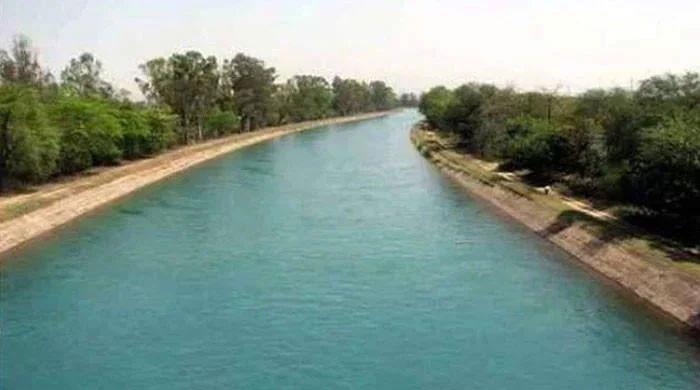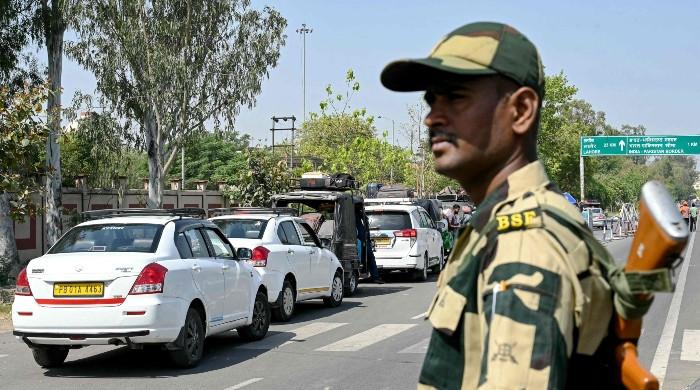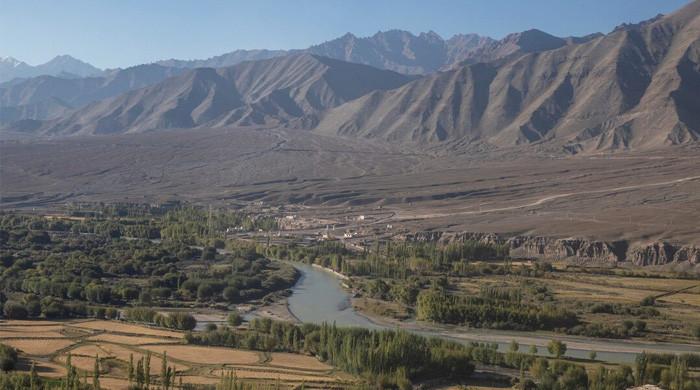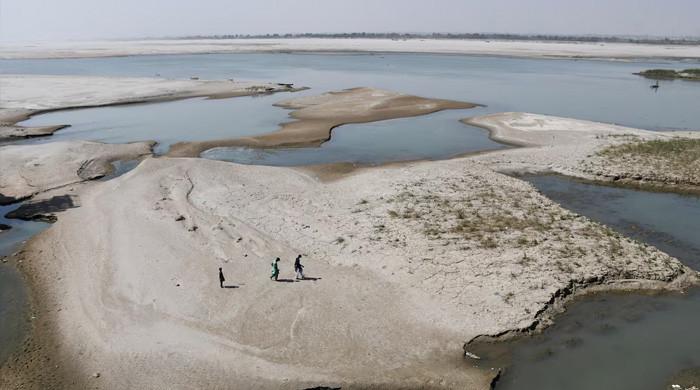India's occupation agenda
India’s oppressive policies, driven by expansionist and hegemonic mindset, have placed millions of innocent lives at risk
February 16, 2025
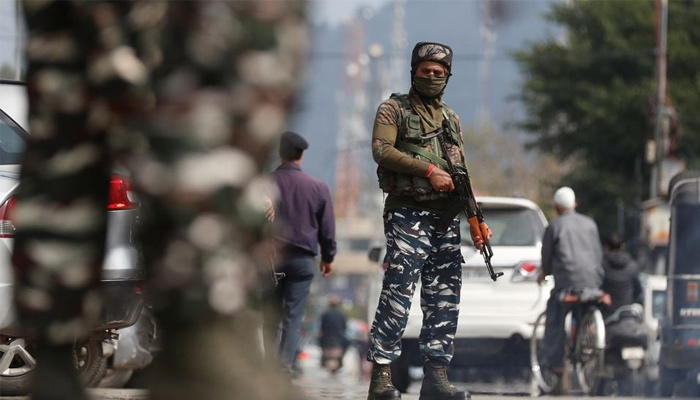
The ongoing human rights violations in Indian-occupied Kashmir (IIOJK) and the aggressive posture of the Indian military along the Line of Control (LoC) have become a glaring testament to India’s blatant disregard for international norms.
India’s oppressive policies, driven by an expansionist and hegemonic mindset, have placed millions of innocent lives at risk. Under the guise of counterterrorism and national security, the Indian forces have unleashed a campaign of terror upon the people of Kashmir, subjecting them to draconian laws, extrajudicial killings, enforced disappearances, and systematic demographic alterations.
The Modi-led Bharatiya Janata Party (BJP) government continues to manipulate global narratives, portraying itself as a victim while systematically executing an agenda of state-sponsored terrorism.
Meanwhile, the Indian military’s ceasefire violations along the LoC are a stark manifestation of India’s belligerent approach towards Pakistan, wherein civilians, including schoolchildren and medical personnel, have been deliberately targeted. This deliberate and consistent pattern of human rights abuses highlights India’s utter disregard for the Geneva Conventions and the basic principles of humanity.
At the core of India’s governance and military strategies lies an ideology deeply rooted in the teachings of Chanakya Kautilya. Chanakya’s books, ‘Arthashastra’ and ‘Chanakya Neeti’, explicitly endorse the use of deceit, treachery and violence to achieve political and military objectives. The Indian establishment has taken inspiration from these doctrines to justify its aggressive stance against Pakistan, deploying high-level spies such as Commander Kulbhushan Jadhav to orchestrate terrorism and insurgency in Balochistan.
The Research and Analysis Wing (RAW), India’s premier intelligence agency, has long been involved in destabilising Pakistan through terrorist proxies such as the Tehreek-e-Taliban Pakistan (TTP). These operatives have carried out countless attacks on Pakistani military installations, educational institutions, and religious sites, with the aim of fomenting chaos and discord.
This multi-pronged strategy underscores India’s commitment to sowing instability and preventing regional peace, all while projecting itself as a responsible democracy before the world.
One of the most egregious aspects of India’s transgressions is its flagrant violation of the 2003 ceasefire agreement. Despite diplomatic engagements and confidence-building measures, India has continued to conduct cross-border firing and shelling, deliberately targeting both military and civilian infrastructure in Azad Jammu and Kashmir.
There has been a noticeable increase in subversive activities by India along the LoC, as per security sources. Indian forces have escalated their sabotage activities, transporting improvised explosive devices (IEDs), weapons, and narcotics into areas such as Bagh, Battal, Dewa, and others.
This year, between February 4 and 6, four Indian-planted IEDs were recovered in the Battal sector and Rawalakot, resulting in the martyrdom of one civilian.
On February 12 this month, Indian forces violated the ceasefire agreement once again in the Dewa and Bagsar sectors, injuring two Pakistani soldiers. Pakistan has consistently protested against these aggressive acts, raising concerns over India’s involvement in spreading unrest in areas like Poonch, Bagh, Kotli, Mirpur and Rawalakot.
The discovery of Indian IEDs in critical locations, along with evidence of orchestrated cross-border violence, underscores India’s systematic attempts to terrorise civilian populations and destabilise the region. These reckless actions, combined with India’s repeated false flag operations and misinformation campaigns, reveal a broader strategy aimed at deflecting attention from its own war crimes in Occupied Kashmir.
The Indian state’s relentless oppression in IIOJK extends beyond its military aggression. Systematic land confiscations, unlawful detentions, and economic marginalisation of Kashmiri Muslims have become key instruments in India’s strategy to alter the region’s demography. The abrogation of Article 370 in August 2019 marked the beginning of a new phase of demographic engineering, aimed at diluting the Muslim majority status of Occupied Kashmir.
The forced displacement of local Kashmiris and the introduction of settler colonialism have further exacerbated tensions, rendering the indigenous population vulnerable to state-sponsored exploitation. India’s policies violate UN Security Council resolutions while also contradicting the principles enshrined in the Universal Declaration of Human Rights. The international community’s silence on these grave violations has emboldened India to continue its repression with impunity.
Meanwhile, the BJP government continues to propagate anti-Pakistan rhetoric to consolidate its domestic political support, using Pakistan as a scapegoat to mask its own governance failures and rising internal dissent.
India’s ceaseless provocations along the LoC, its sponsorship of cross-border terrorism and its iron-fisted rule in IIOJK are a threat to regional stability. The international community must recognise India’s role as an aggressor and hold it accountable for its violations of international law.
Pakistan has consistently provided irrefutable evidence of India’s subversive activities to global bodies such as the UN, yet little has been done to curb India’s expansionist ambitions.
While India seeks to manipulate global forums to malign Pakistan, its own track record of human rights abuses, false flag operations, and state-backed terrorism speaks volumes. The onus now lies upon the global powers to take cognisance of India’s reckless adventurism and ensure that justice prevails.
Peace in South Asia can only be achieved when India abandons its militaristic policies, respects international treaties, and ceases its oppression of the Kashmiri people.
Disclaimer: The viewpoints expressed in this piece are the writer's own and don't necessarily reflect Geo.tv's editorial policy.
The writer is a freelance contributor and writes on issues concerning national and regional security. She can be reached at: [email protected]
Originally published in The News




